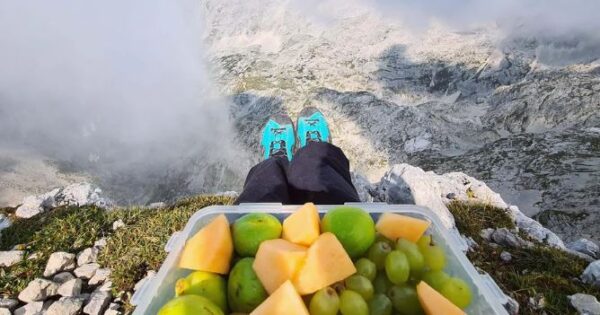
Hiking is a fantastic activity that allows us to connect with nature, explore breathtaking landscapes, and challenge ourselves physically.
For hikers of all ages and anyone coming back from an injury, preparing your body before hitting the trail is crucial to ensure an enjoyable and safe hiking experience.
Read on to learn valuable tips to prepare your body for hiking adventures.
1. Start with breakfast
Include protein and a little fat at breakfast, which delay the absorption of sugar into the blood, take longer to digest and make you feel fuller than eating carbohydrates alone.
Try pairing orange juice with eggs, muesli or dense wholegrain bread with peanut butter.
2. Have early dinners
It’s common knowledge that an early dinner can benefit the body by improving digestion, enhancing sleep quality and supporting metabolism.
Eating earlier allows the body enough time to properly digest food before bedtime, reducing the risk of indigestion, acid reflux and bloating. It also helps regulate blood sugar levels, preventing late-night cravings and unnecessary snacking.
And having dinner at the right time can also help you prepare for a better trekking journey. Have your meal two or three hours before you sleep, that’s healthy.
Ensure your dinners have complex carbs, don’t go for a low-carb option. Cut out junk food completely if possible and as much as possible go for home-cooked food.
What if you have to go out for a bite? In that case, you must be a smart picker. But home-cooked meals should be your goal because you can be sure about the ingredient quality, the quality of oil that goes into it and make sure they are healthy.
3. Hydrate, hydrate and hydrate
Drink regularly. That doesn’t mean wine or beer! Alcohol taxes your liver and you won’t have the energy you need if you tax your liver.
Save it for the celebration. Dehydration can have a major effect on mood and exercise performance. Be sure to drink water before, during and after you exercise to stay well hydrated. People require different amounts of fluids during exercise.
The best gauge is the colour of your urine. If this is concentrated – you are not drinking enough.
4. Consciously incorporate protein in every meal
Especially in vegetarians, the protein sources in a regular diet are very few. However, there are a wonderful number of protein-rich foods for vegans as well.
What is important is to consciously incorporate them into your diet: in every single meal you consume. Also, proteins are extremely filling. If you have a protein-rich meal, you don’t feel hungry between meals, thereby reducing your cravings.
Some good foods high in protein include: most varieties of lentils, paneer, peanut butter, tofu, green leafy vegetables, eggs, soya and soy milk.
Most meats also contain a fair amount of protein when properly cooked.
